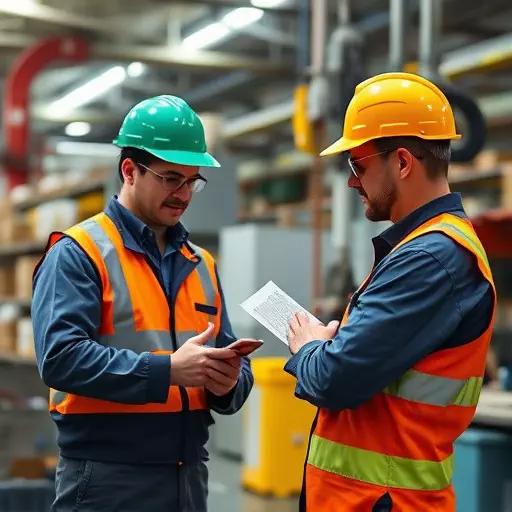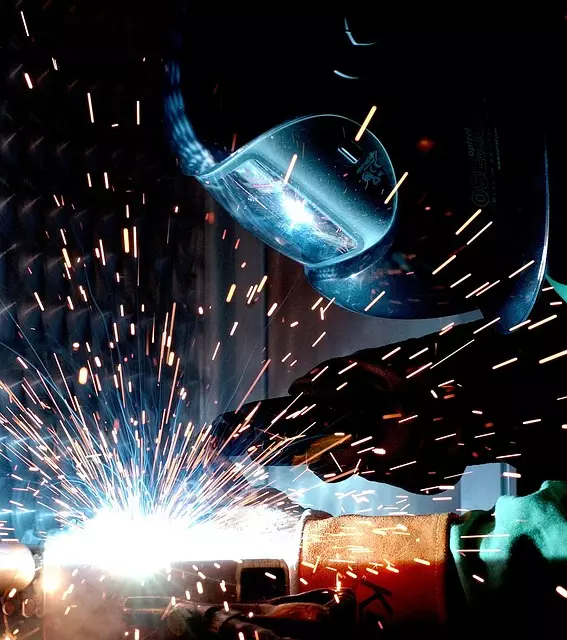Industrial hygiene consultants are crucial for mitigating workplace hazards through comprehensive evaluations and equipment calibration checks. They identify risks associated with machinery, chemical exposures, noise levels, and ergonomic factors, ensuring compliance with occupational exposure limits. By educating workers on safety protocols and implementing control measures, these consultants foster a proactive culture of safety, preventing accidents and enhancing productivity in today's industrial setting.
In today’s industrial landscape, proper equipment calibration is paramount for ensuring worker safety and compliance with regulations. Industrial hygiene consultants play a crucial role in this process, leveraging their expertise to identify and mitigate workplace hazards associated with uncalibrated machinery. This article delves into the multifaceted aspects of equipment calibration, including the evaluation of occupational exposure limits, comprehensive workplace hazard assessments, and strategies for maintaining adherence to legal standards. By exploring these key areas, we aim to highlight the importance of continuous monitoring and improvement in fostering a safer work environment.
- The Role of Industrial Hygiene Consultants in Equipment Calibration
- – Importance of industrial hygiene consultants in workplace safety
- – Expertise in identifying and mitigating workplace hazards
The Role of Industrial Hygiene Consultants in Equipment Calibration
Industrial Hygiene Consultants play a pivotal role in ensuring accurate equipment calibration, especially in industries where workplace hazards are prevalent. These specialists are equipped with expertise in identifying and assessing potential risks associated with machinery and tools. They conduct thorough inspections and evaluations to determine if equipment is functioning within specified parameters, adhering to relevant occupational exposure limits.
Through their guidance, companies can mitigate risks by identifying and rectifying any deviations or discrepancies in equipment calibration. This process is crucial in preventing accidents, protecting workers’ health, and ensuring compliance with safety regulations. Industrial Hygiene Consultants contribute to creating a safer workplace environment by facilitating regular calibration checks and providing insights into the potential impact of machinery on employee well-being.
– Importance of industrial hygiene consultants in workplace safety
In today’s industrial landscape, ensuring workplace safety is paramount, and this is where industrial hygiene consultants play a pivotal role. These experts are crucial in identifying and mitigating potential hazards that may go unnoticed by regular employees. They conduct comprehensive workplace hazard evaluations, which include assessing chemical, physical, biological, and ergonomic risks. By leveraging their extensive knowledge of occupational exposure limits, they help establish safe work practices and implement control measures to minimize employee exposure to harmful substances.
Industrial hygiene consultants also educate workers on proper safety protocols, ensuring everyone understands the potential risks associated with their tasks. Their involvement is vital in fostering a culture of proactive safety management, where prevention is prioritized over reaction. Regular consultations and evaluations by these professionals can significantly contribute to maintaining a healthy work environment, reducing accidents, and enhancing overall productivity.
– Expertise in identifying and mitigating workplace hazards
Ensuring a safe and healthy work environment is paramount for any organisation, and this starts with a thorough understanding and management of workplace hazards. Industrial hygiene consultants play a pivotal role here, offering expertise in identifying potential risks and implementing strategies to mitigate them. These professionals conduct comprehensive assessments, employing scientific methods and tools to evaluate various factors such as air quality, noise levels, chemical exposure, and ergonomic considerations.
By conducting regular workplace hazard evaluations, industrial hygiene consultants help organisations comply with occupational exposure limits set by regulatory bodies. This proactive approach not only protects employees’ health and well-being but also fosters a culture of safety and productivity. Through their insights and recommendations, they enable companies to create effective control measures, implement appropriate personal protective equipment, and establish safe work practices, ultimately contributing to a safer and more productive workplace.


